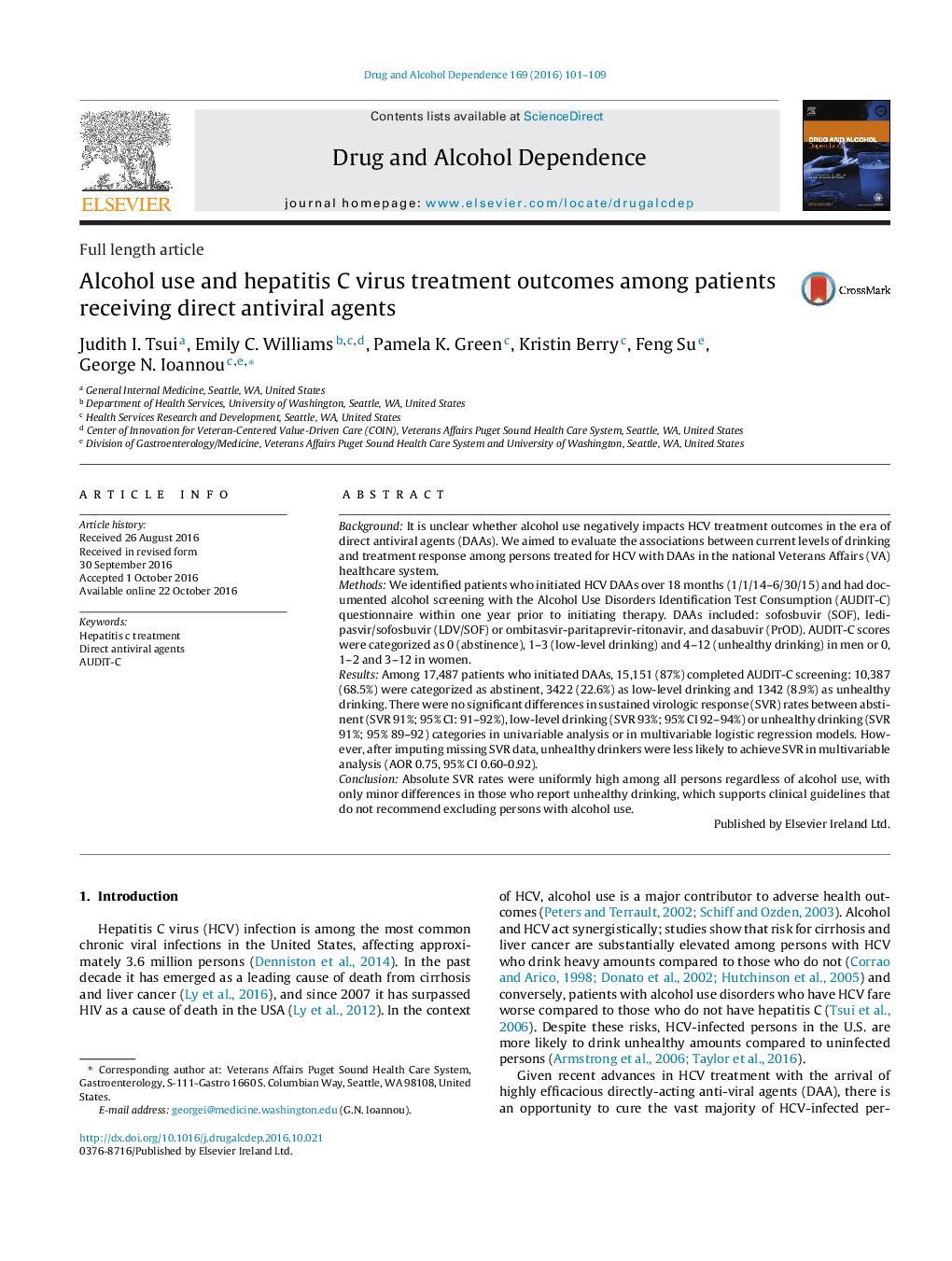| Article ID | Journal | Published Year | Pages | File Type |
|---|---|---|---|---|
| 5120419 | Drug and Alcohol Dependence | 2016 | 9 Pages |
â¢31.5% of patients on hepatitis C virus (HCV) treatment reported alcohol use in the previous year.â¢Direct anti-viral agents (DAAs) resulted in high sustained virologic response (SVR) (“cure”) rates (>90%) regardless of alcohol use.â¢Unhealthy drinkers were slightly less likely to achieve SVR.â¢Alcohol users should not be excluded from HCV treatments.
BackgroundIt is unclear whether alcohol use negatively impacts HCV treatment outcomes in the era of direct antiviral agents (DAAs). We aimed to evaluate the associations between current levels of drinking and treatment response among persons treated for HCV with DAAs in the national Veterans Affairs (VA) healthcare system.MethodsWe identified patients who initiated HCV DAAs over 18 months (1/1/14-6/30/15) and had documented alcohol screening with the Alcohol Use Disorders Identification Test Consumption (AUDIT-C) questionnaire within one year prior to initiating therapy. DAAs included: sofosbuvir (SOF), ledipasvir/sofosbuvir (LDV/SOF) or ombitasvir-paritaprevir-ritonavir, and dasabuvir (PrOD). AUDIT-C scores were categorized as 0 (abstinence), 1-3 (low-level drinking) and 4-12 (unhealthy drinking) in men or 0, 1-2 and 3-12 in women.ResultsAmong 17,487 patients who initiated DAAs, 15,151 (87%) completed AUDIT-C screening: 10,387 (68.5%) were categorized as abstinent, 3422 (22.6%) as low-level drinking and 1342 (8.9%) as unhealthy drinking. There were no significant differences in sustained virologic response (SVR) rates between abstinent (SVR 91%; 95% CI: 91-92%), low-level drinking (SVR 93%; 95% CI 92-94%) or unhealthy drinking (SVR 91%; 95% 89-92) categories in univariable analysis or in multivariable logistic regression models. However, after imputing missing SVR data, unhealthy drinkers were less likely to achieve SVR in multivariable analysis (AOR 0.75, 95% CI 0.60-0.92).ConclusionAbsolute SVR rates were uniformly high among all persons regardless of alcohol use, with only minor differences in those who report unhealthy drinking, which supports clinical guidelines that do not recommend excluding persons with alcohol use.
